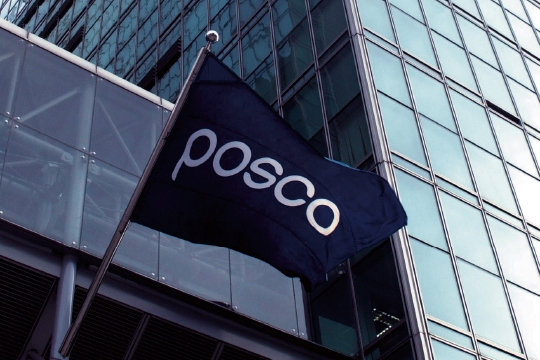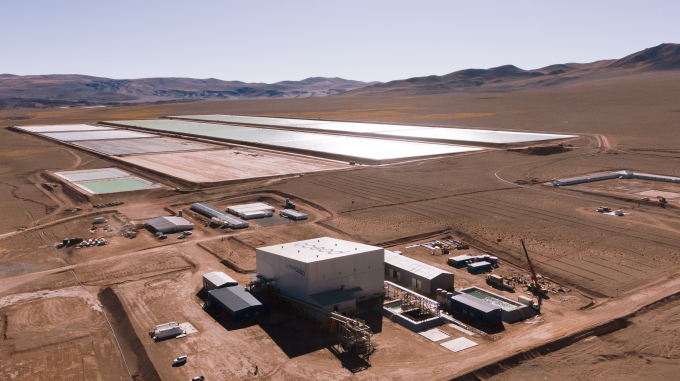Battery materials
POSCO aims for top spot in EV battery materials market
By Dec 03, 2020 (Gmt+09:00)
2
Min read
Most Read
S.Korea's LS Materials set to boost earnings ahead of IPO process


CarlyleŌĆÖs Rubenstein sees commercial real estate undervalued


Samsung Electronics' key M&A man returns; big deals in the offing


Money pours in for technology to reshape Korean restaurants


CJ CheilJedang to sell feed, livestock unit for $1.4 bn



Electric car batteries are often dubbed as "another semiconductor" in South Korea, a reference to the importance of semiconductor chips, key drivers in the countryŌĆÖs economic growth for decades.
With competition heating up in the global race for eco-friendly vehicles, KoreaŌĆÖs three EV battery makers, already global leaders in terms of output capacity, are churning out increasing volumes to gain even more ground.
However, a major concern for the three Korean players, LG Chem Ltd., Samsung SDI Co. and SK Innovation Co., is how to secure stable volumes of lithium, nickel and graphite ŌĆō key materials for rechargeable batteries.
POSCO, KoreaŌĆÖs largest steelmaker, on Dec. 3 unveiled its goal of becoming the worldŌĆÖs top player in the global EV battery materials market by 2030 by establishing a value chain from raw material procurement to production of battery materials.
POSCO CHEMICAL TO LEAD BATTERY MATERIALS BUSINESS
At the forefront of the long-term project is POSCO Chemical Co., which plans to procure 220,000 tons of lithium and 100,000 tons of nickel by 2030, with an aim to gain a 20% share of the global market by posting 23 trillion won in sales by that time.
The chemical unit also plans to produce 400,000 tons of anodes and 260,000 tons of cathodes, two key materials used in EV batteries, by then.
ŌĆ£POSCO is the only company in the world that has a secondary battery material supply chain,ŌĆØ said POSCO Chairman Choi Jeong-woo.
In efforts to diversify import sources of graphite, a material used to make anodes, POSCO said on Thursday it is considering buying stakes in graphite mines in Africa and Australia.
The steelmaker, which currently imports 100% of its graphite needs from China, plans to lower its dependence on China to less than 50% over the medium to long term.
ARGENTINE SALT LAKE, A BOON FOR POSCO
The company has another advantage in attaining its goal of becoming a top battery materials player.

POSCO said in October that the Salar del Hombre Muerto salt flat in northern Argentina it purchased from an Australian mining firm in 2018 proved to contain more lithium deposits than initially estimated.
A review of the salt lake by an international consulting firm showed it is estimated to contain 13 million tons of lithium, six times more than the initial estimate of 2.2 million tons, according to POSCO. The latest estimate is enough for 370 million electric vehicles.
POSCO also plans to start a battery recycling business to extract raw materials such as nickel, lithium and cobalt from waste batteries. Separately, POSCO Chemical plans to develop a next-generation EV battery, called an all-solid-state battery (ASSB), which enables longer mileage and a shorter charging time than current EV batteries due to its higher energy density.
To help finance the projects, POSCO Chemical increased its capital by 1 trillion won through a rights offer in November.
ŌĆ£Based on our differentiated competitive edge, we will foster battery materials as our world-class business,ŌĆØ said POSCO Chairman Choi.
Write to Man-Su Choe at bebop@hankyung.com
In-Soo Nam edited this article.
More to Read
-
 Korean chipmakersSouth KoreaŌĆÖs chip design firms go abroad to tap $426 billion market
Korean chipmakersSouth KoreaŌĆÖs chip design firms go abroad to tap $426 billion market6 HOURS AGO
-

-

-

-

Comment 0
LOG IN


